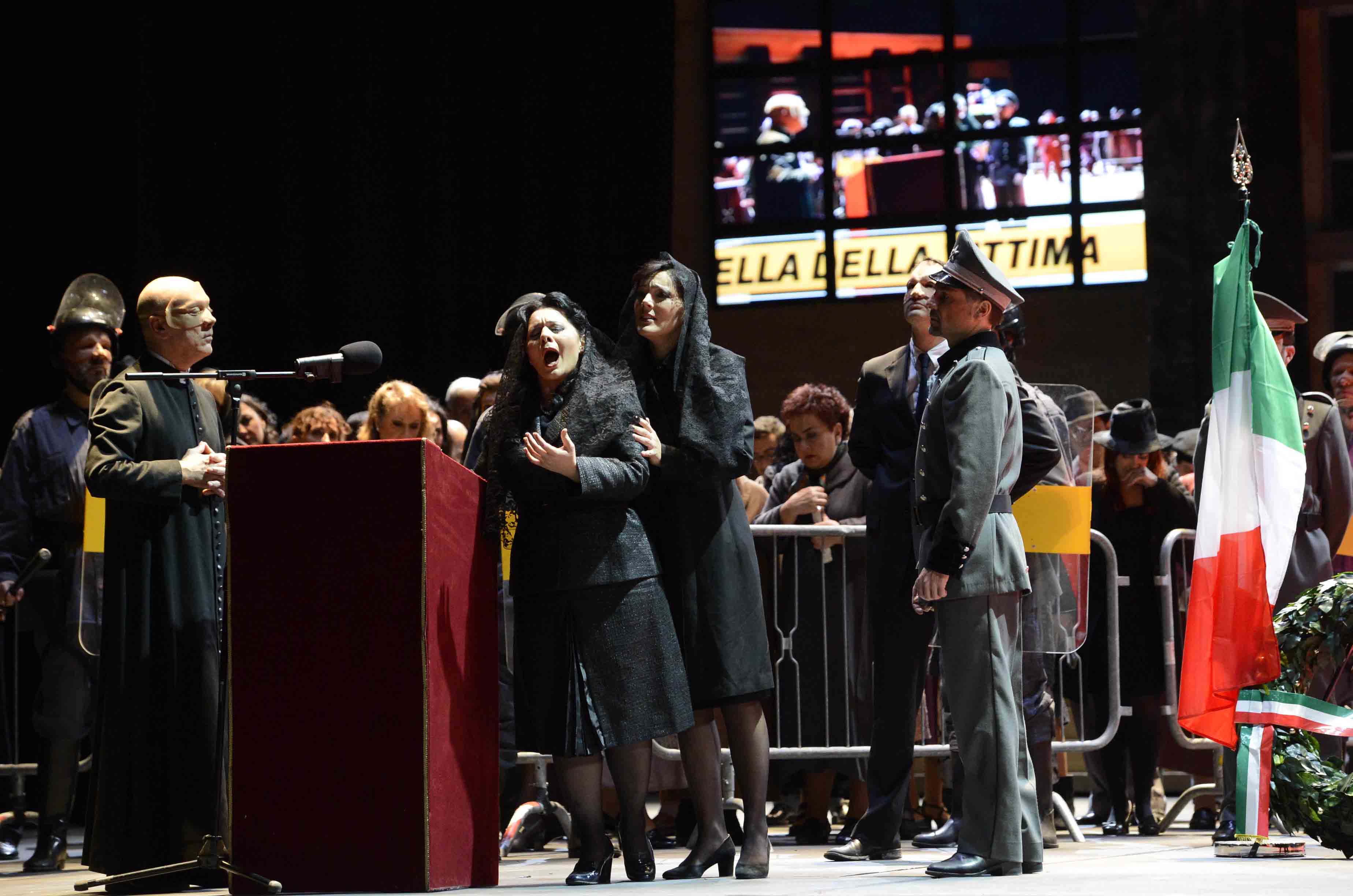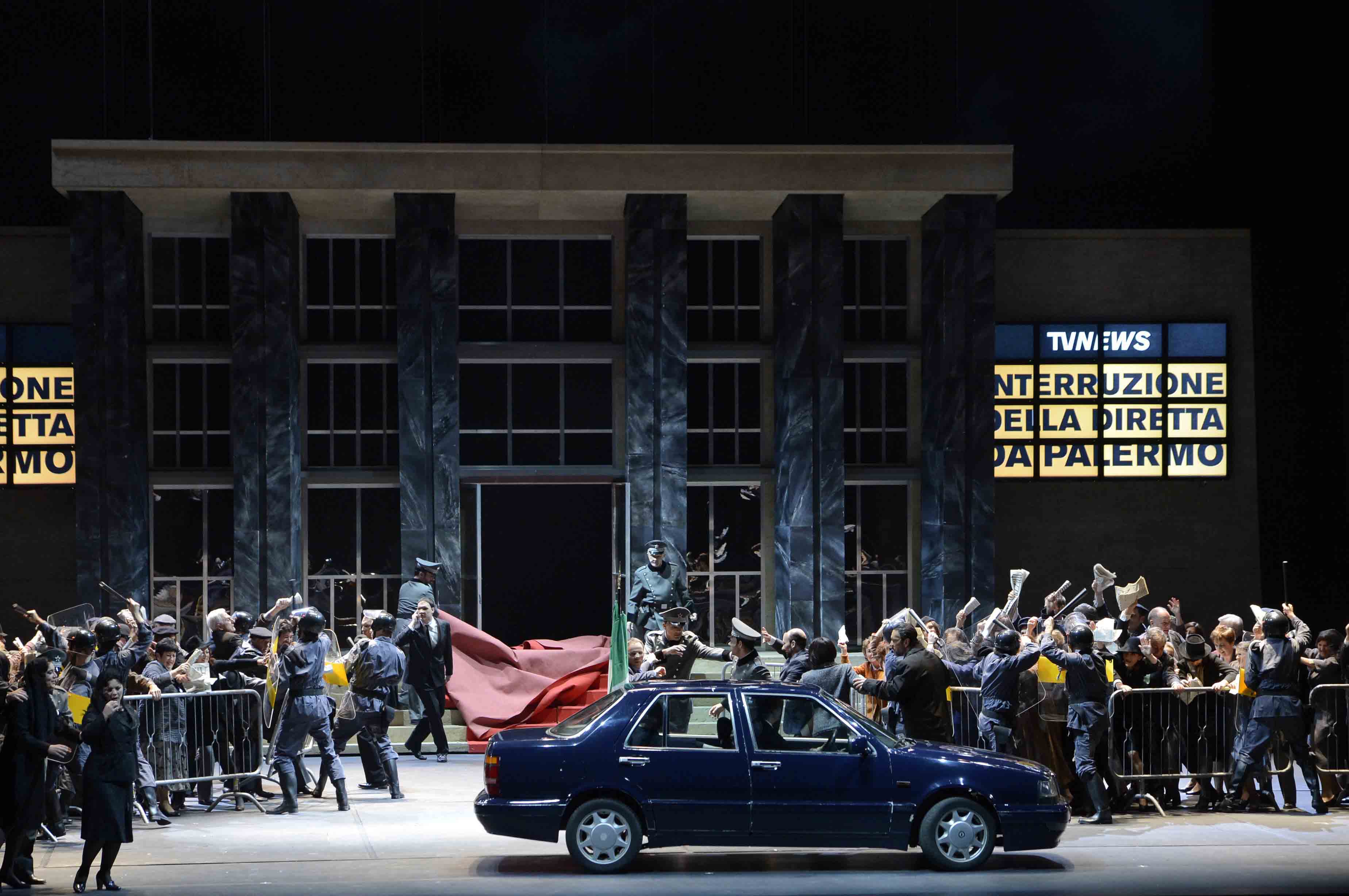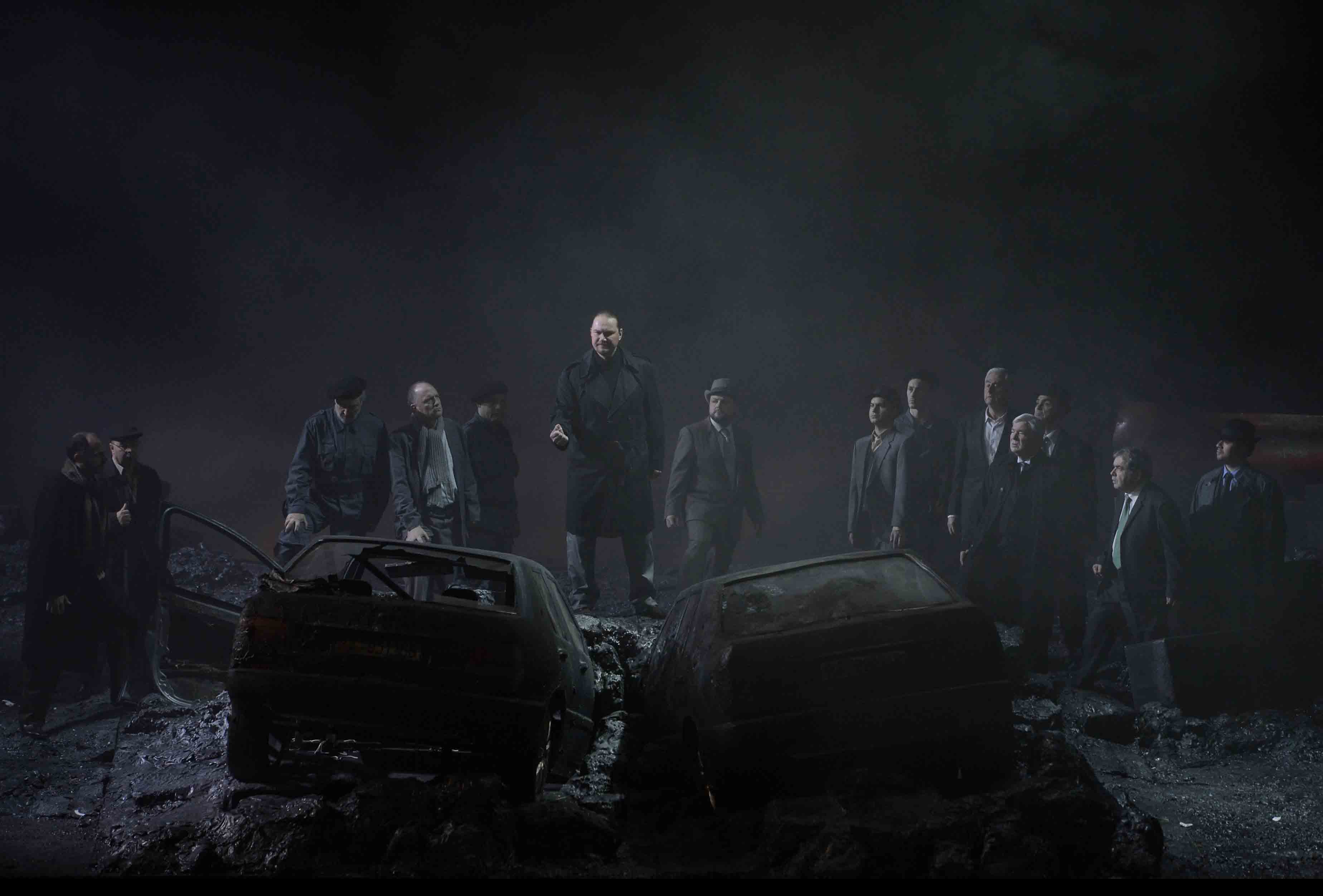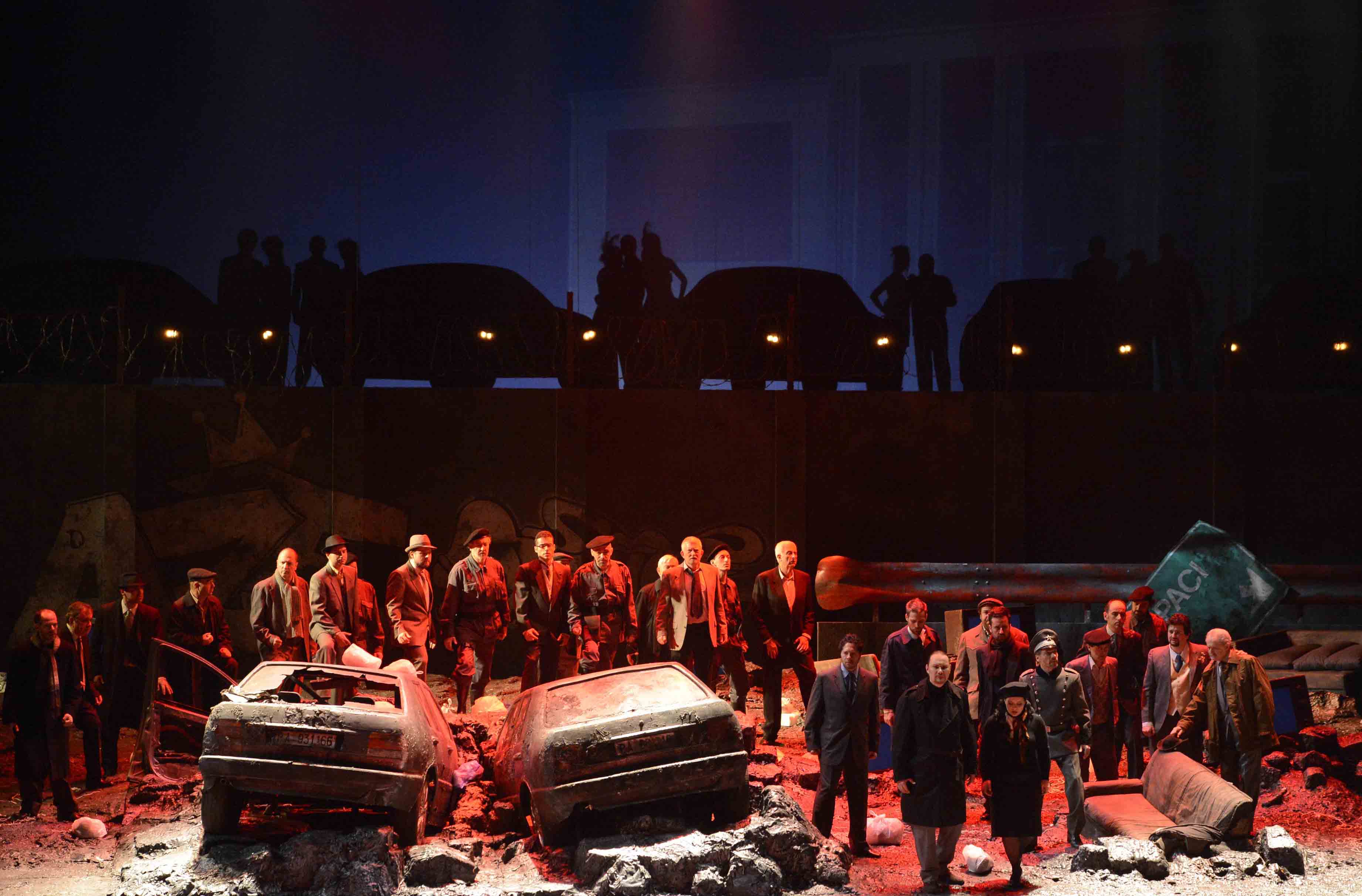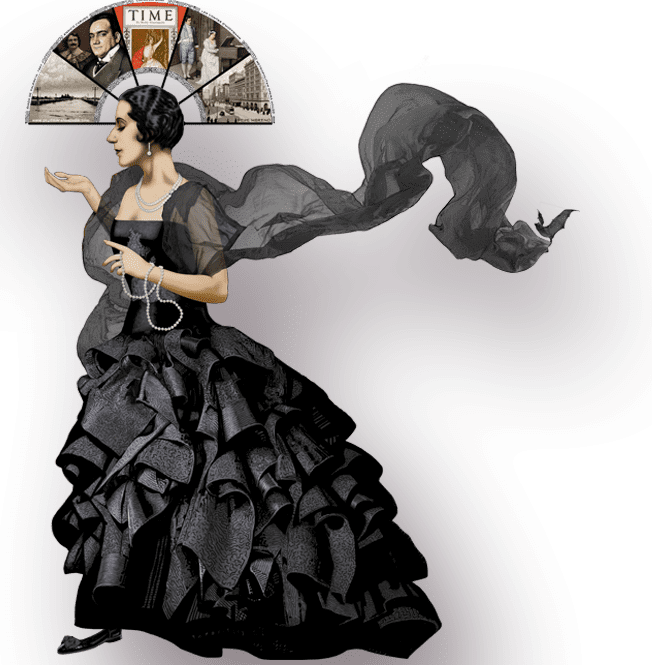I vespri siciliani
Giuseppe Verdi
Sala Principal
ConductorRoberto AbbadoStage DirectorDavide LivermoreSet DesignerSanti CentineoCostume DesignerGiusi GiustinoLighting DesignerAndrea AnfossiChoreographerLuisa Baldinetti
Cor de la Generalitat Valenciana Francesc Perales, chorus master
Orquestra de la Comunitat Valenciana
CoproductionTeatro Regio di Torino, ABAO-OLBE
Arrigo Gregory Kunde Elena Maribel Ortega (10, 16, 21) Sofia Soloviy (13, 18) Montforte Juan Jesús Rodríguez Procida Alexánder Vinogradov
Bethune Andrea Pellegrini * Vaudemont Cristian Díaz Ninetta Nozomi Kato * Danieli Moisés Marín * Tebaldo Andrés Sulbarán * Roberto Jorge Álvarez * Manfredo Fabián Lara *
* Centre Plácido DomingoBackground
In 1282, Giovanni da Procida, a Sicilian patriot, was exiled upon the French invasion of Sicily. Guido di Monforte, commander of the French army, raped a Sicilian woman who then gave birth to their son: Arrigo. Monforte would later become governor of Sicily and Arrigo, without knowing that Monforte is his father, grows up hating the French commander.
Act I
Palermo’s main square. The French soldiers are amusing themselves while the Sicilians observe them with bitterness and disdain. Duchess Elena appears, in mourning for the death of her brother who has been executed by the French authorities, and sings a song inciting the Sicilians to revolt. The song ends abruptly at the arrival of the governor, Guido di Monforte. Arriving with the governor is Arrigo, whom Elena loves. It is at that moment that she discovers that Arrigo has been arrested for high treason. The youth, who has never seen the governor in person, starts to spout all his hatred against Monforte right in front of him. With bemused admiration for the young man’s daring, Monforte offers him a position in the French army, which Arrigo proudly rejects.
Act II
Procida meets with Elena and Arrigo near Palermo to devise a plan against the French. Elena, impressed by the recent courage shown by Arrigo, declares her love. Later, Arrigo is arrested and taken by force to the palace of the Governor, after declining an invitation from him. Meanwhile, in the square, a group of French troops begins to dance and make a bit of mischief. In the heat of the revelry, they kidnap a group of Sicilian girls, giving rise to adamant protests from the Sicilian men, who suddenly spy a boat leaving the dock with French men and Sicilian women on board. They are heading to the same party that Procida and his followers will attend in disguise to seek revenge.
Act III
Monforte reveals to Arrigo that he is his father. The young man reacts violently and flees in horror. Meanwhile, at the palace ball, Elena and Procida, both disguised, tell Arrigo of their plans to assassinate Monforte. Arrigo, feeling confused and disoriented, ends up foiling the coup and is labeled by his countrymen as a traitor to the motherland.
Act IV
Elena and Procida, waiting in prison to be executed after the assassination attempt on the life of the Governor, forgive Arrigo when he tells them the reason for his treason. The young man shows his willingness to die with his comrades, but Monforte, happy to have found the love of a son, announces forgiveness for all and gives his blessing for Arrigo and Elena to get married that same day.
Act V
Procida reveals to Elena his plan to assassinate their enemies as soon as she and Arrigo have taken their vows. Torn between love and duty, Elena resolves her doubts by announcing to Arrigo that she will not marry him. Procida and Arrigo are furious with Elena, albeit for very different reasons. Monforte marries the couple without suspecting anything untoward. The wedding bells ring out, which the Sicilian rebels take as the sign to commence fighting. The fury of the revolt falls on Monforte, Arrigo, Elena, and the entire wedding party.
© E. Moreno Esquibel – ABAO-OLBE
